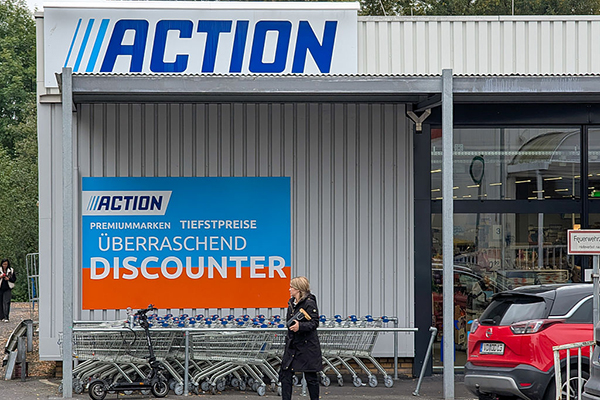Are these investment trusts the bargain of the decade?
Trusts specialising in this area of the market are facing a number of headwinds, but for investors seeking value, the sector warrants a closer look.
14th October 2025 10:19
by Cherry Reynard from interactive investor

On the face of it, private equity looks like the bargain of the decade. The Association of Investment Companies (AIC) private equity sector has the strongest performance record of any investment trust sector.
Over a decade, the average private equity trust is up 670% (to 13 October) – that’s more than double the return of the Nasdaq. Yet trusts are trading at rock-bottom prices, with discounts of -25% to -30% not uncommon. What’s the catch?
- Invest with ii: Buy Investment Trusts | Top UK Shares | Open a Trading Account
There’s certainly a lot to like about private equity as an asset class. Private equity still boasts a “Heineken” factor – reaching the parts that public markets cannot reach.
Companies are often staying private for longer and there are opportunities in the private market that simply cannot be replicated in public markets. There is no public market equivalent to SpaceX, for example, which is now the largest holding in Scottish Mortgage Ord (LSE:SMT). The world’s most innovative companies are increasingly choosing private equity funding over the structures of public markets.
Charlotte Morris, co-fund manager at Pantheon International Ord (LSE:PIN), says: “Private equity managers tend to focus on high-growth sectors, many of which may not be fully represented by the public markets. In addition, the number of publicly quoted companies globally has been shrinking with many companies staying private for longer, and they may not go public at all. Private equity managers are inherently nimble and flexible and so they are able to take advantage of the opportunities even in times of economic uncertainty.”
James Carthew, head of investment company research at QuotedData, points out that there are many more unlisted companies than listed ones and many of these unlisted businesses are among the best in their field. He says: “Often, businesses do not want the hassle that comes with being listed, and many private companies are opting to stay private for longer.”
- 10 hottest ISA shares, funds and trusts: week ended 10 October 2025
- Sign up to our free newsletter for investment ideas, latest news and award-winning analysis
Private markets also offer a different sectoral exposure to that of listed markets and can therefore offer a means to diversify an investment portfolio. Then there is the strong long-term track record. Net asset values (the performance of the underlying investments) for the private equity investment trusts wobbled a little in the wake of the Covid pandemic, but now appear to be firmly back on track.
Wealth managers retreat from the sector
However, there are complexities. The overall sector performance is skewed by the astonishing performance of 3i Group Ord (LSE:III), which is up 1,153% over 10 years. Carthew points out that its performance has been dominated by one phenomenally successful investment, a European retailer called Action. Its portfolio is highly concentrated, which brings risks. Other trusts have done well, but investors need to recognise that this is an outlier.
Exits are still a problem. Private equity managers rely on a fertile IPO market to realise the value of their investments and deal activity has been lacklustre.
Morris says: “The last few years in private equity have been characterised by a prolonged period of lower deal activity and a meaningful decline in distributions. Private equity managers typically wait until the timing and market conditions are right before selling their portfolio companies. A record backlog of unsold assets, a higher interest rate environment, and the persistent macroeconomic uncertainty have reshaped the landscape of the private equity industry.”
Equally, even if the outlook looks good and valuations are compelling, someone has to be willing to buy them. Historically, wealth managers have been significant buyers and here, there’s a problem. The intricacies of a piece of regulation called the “cost disclosure regime” are complex, but the outcome is that the rules, as currently structured, forces wealth managers to declare an unusually high cost for private equity investment trusts. For wealth managers in a cost-competitive environment, that’s a problem.
- Ian Cowie: the winners and losers in my ‘forever fund’ in Q3 2025
- Watch our video: how Smithson has fared since record-breaking IPO
Nick Greenwood, consultant fund manager on the MIGO Opportunities Trust Ord (LSE:MIGO) trust, says: “Having to disclose this high figure makes holding these trusts almost unviable for many wealth managers. It looks like the right time in the cycle for private equity trusts, but unless they can resolve this cost disclosure issue and some of the other problems with the regulation, these discounts may not right themselves.”
There are signs of a resolution of the issue as a result of some strenuous lobbying from influential wealth managers and investors. Equally, the trusts have been taking matters into their own hands. Trusts have been undertaking buybacks and working hard to identify new buyers for their trusts. There are also signs of merger and acquisition activity. For example, in July the board of Apax Global Alpha announced that it had agreed terms of a recommended cash acquisition of the company. If this signals the start of more activity, it could narrow discounts.

Credit: A branch of Dutch non-food discounterAction in Alsfeld, Germany. The performance of 3i Group has been dominated by its phenomenally successful investment in Action. Photo: Michael Nguyen/NurPhoto via Getty Images.
On the lookout for opportunities
Equally, there will be investors that conclude that it doesn’t matter very much if discounts don’t narrow. Net asset value (NAV) performance is improving, and investors can still participate in the long-term growth of some exciting companies.
Carthew says that there’s still plenty of choice in the sector. He points out that more risk-averse investors might want to look at Literacy Capital PLC (LSE:BOOK), for example, which invests directly into about 20 companies including an operator of trampoline and adventure parks, a tyre replacement and repair service for plant hire companies, and a manufacturer of polythene packaging products.
HgCapital Trust Ord (LSE:HGT) and Oakley Capital Investments Ord (LSE:OCI) are specialist trusts, holding a spread of new investments and maturing investments in the portfolio.
Carthew says: “HgCapital is big on software-related businesses. Oakley covers technology, business services, education, and consumer companies. As with funds focused on listed equities, the aim with private equity is to identify promising businesses and grow these over time. Most money is made by growing sales and earnings, not – as is often claimed – through financial engineering or savage cost-cutting.”
ICG Enterprise Trust Ord (LSE:ICGT), CT Private Equity Trust Ord (LSE:CTPE) and Patria Private Equity Trust (LSE:PPET) take a multi-pronged approach, investing in “primary” commitments to new funds and by buying stakes in existing funds (known in the industry as “secondaries”). They also make investments in companies directly.
“The biggest listed private equity investment companies – HarbourVest Global Priv Equity Ord (LSE:HVPE) and Pantheon – have the most diversified underlying portfolios, although they have also been shifting more into direct investments,” says Carthew.
There’s growing optimism that the sector may be turning. Morris says the team at Pantheon has witnessed an uptick in distributions throughout the year with several of its underlying managers finalising the sales of portfolio companies: “That, coupled with reports that some potentially large initial public offerings may come to fruition, could help to improve overall market sentiment and provide the catalyst for deal activity to start to pick up.”
She adds: “Dry powder, which is capital that has been raised and is available to invest but has not yet been deployed, is concentrated among the larger buyout private equity managers, which means that this capital is available to purchase assets from small and mid-market managers such as those in PIN’s portfolio.”
- Top 10 most-popular investment trusts: September 2025
- Fund and trust ideas for the short, medium and long term
A final wrinkle for private equity trusts is the potential threat from Long-term Asset Funds (LTAFs). LTAFs are a new fund structure, backed by the government that provides access to less liquid asset classes – such as private equity – with exits every three or six months. These new vehicles could mop up demand and present a problem for private equity trusts.
Greenwood is sceptical. He says that LTAFs’ primary advantage appears to be their periodic liquidity, but asset classes can often be out of favour for longer than six months. In investment trusts, investors can always get a price, even if they don’t like it.
A recent survey by the AIC found that Discretionary Fund Managers continue to prefer investment trusts – 91% said they would use investment trusts to gain access to private markets, while only 23% would use semi-liquid funds such as LTAFs.
Overall, while there are still hurdles for the sector to overcome, Carthew is optimistic: “With the exception of 3i, all the listed private equity investment companies are cheap on a share price discount to net asset value basis. There is little rhyme or reason for this. The valuations of the underlying businesses tend to be quite conservative – so that when they sell investments there is often a jump in the NAV.”
He says that in periods when there are fewer realisations, NAV growth can look a bit flat. That situation will not persist forever and if NAVs start to climb, interest could flood back into the sector. That may be a reason for a bold investor to look at the sector now.
These articles are provided for information purposes only. Occasionally, an opinion about whether to buy or sell a specific investment may be provided by third parties. The content is not intended to be a personal recommendation to buy or sell any financial instrument or product, or to adopt any investment strategy as it is not provided based on an assessment of your investing knowledge and experience, your financial situation or your investment objectives. The value of your investments, and the income derived from them, may go down as well as up. You may not get back all the money that you invest. The investments referred to in this article may not be suitable for all investors, and if in doubt, an investor should seek advice from a qualified investment adviser.
Full performance can be found on the company or index summary page on the interactive investor website. Simply click on the company's or index name highlighted in the article.